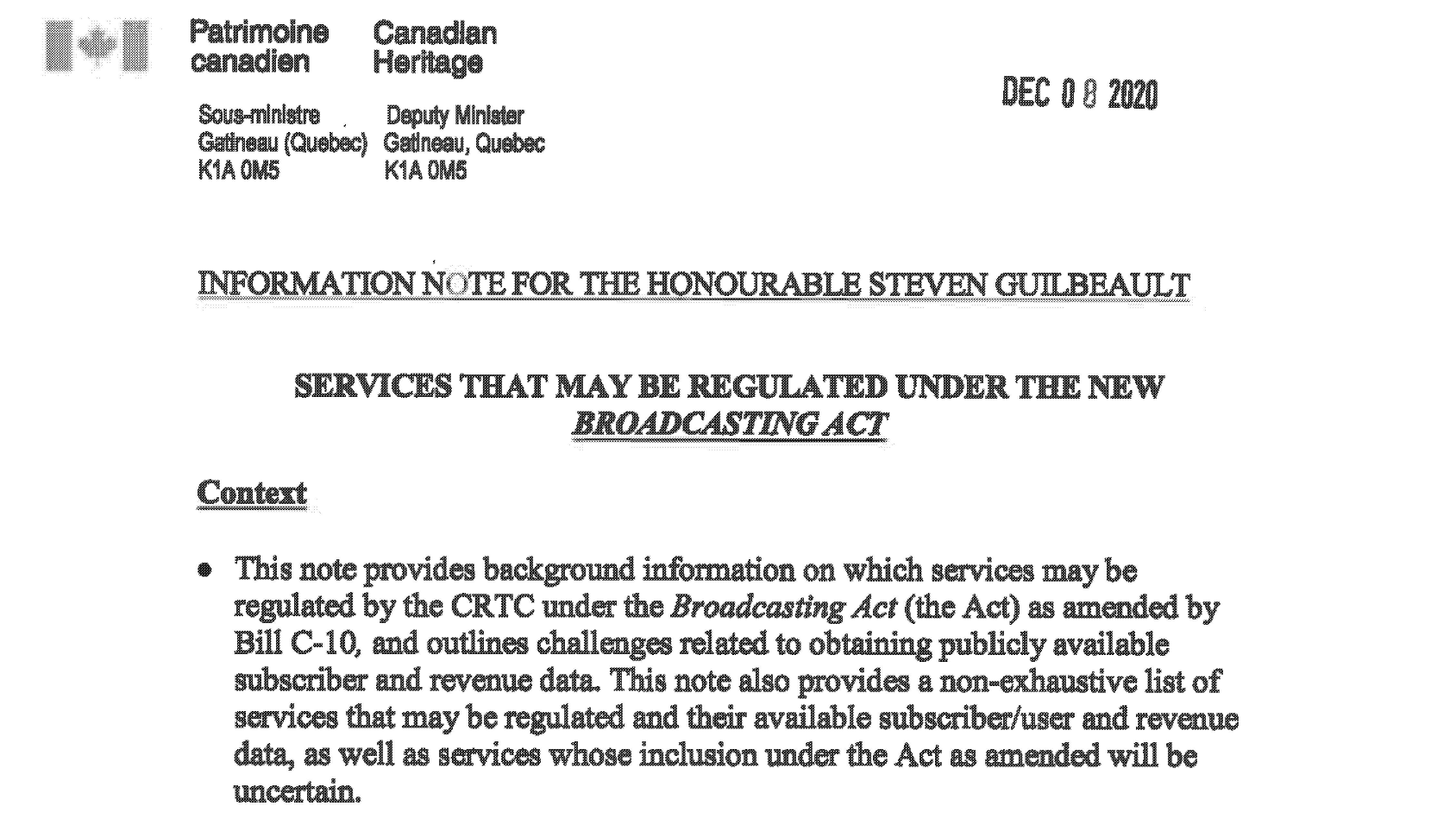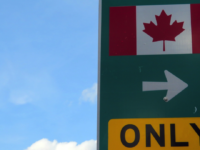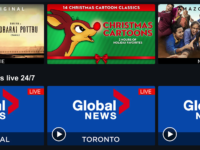One of the more controversial aspects of Bill C-10 has proven to be the decision to remove the very first policy declaration in the Broadcasting Act as found in Section 3(1)(a): “the Canadian broadcasting system shall be effectively owned and controlled by Canadians.” Critics have unsurprisingly jumped on the issue, expressing concern that removing the ownership and control requirements will ultimately undermine claims from Canadian Heritage Minister Steven Guilbeault that the bill is essential to preserving Canadian cultural sovereignty. The Broadcasting Act blunder series continues with an examination of the issue, concluding that the critics are right and that Bill C-10 marks the beginning of the end of Canadian ownership requirements (prior posts in the Broadcasting Act Blunder series include Day 1: Why there is no Canadian Content Crisis, Day 2: What the Government Doesn’t Say About Creating a “Level Playing Field”, Day 3: Minister Guilbeault Says Bill C-10 Contains Economic Thresholds That Limit Internet Regulation. It Doesn’t, Day 4: Why Many News Sites are Captured by Bill C-10), Day 5: Narrow Exclusion of User Generated Content Services).

Canadian Heritage Memorandum, December 8, 2020, ATIP A-2020-00498
Bill C-10
The Broadcasting Act Blunder, Day 5: The Narrow Exclusion of User Generated Content Services
The Broadcasting Act Blunder series has focused for the past two days on inaccurate claims from Canadian Heritage Minister Steven Guilbeault that the bill contains significant economic thresholds as a guardrail against over-regulation and excludes news from its ambit. As I noted, the bill does no such thing, though the CRTC will be able to establish regulatory exemptions once it conducts extensive hearings on implementing the legislation should it pass (prior posts in the Broadcasting Act Blunder series include Day 1: Why there is no Canadian Content Crisis, Day 2: What the Government Doesn’t Say About Creating a “Level Playing Field”, Day 3: Minister Guilbeault Says Bill C-10 Contains Economic Thresholds That Limit Internet Regulation. It Doesn’t, Day 4: Why Many News Sites are Captured by Bill C-10).
One type of service that is narrowly exempted from the new regulation in Bill C-10 is user generated content services, referred to in the bill as social media services. The bill states:
The Broadcasting Act Blunder, Day 4: Why Many News Sites Are Captured by Bill C-10
The Broadcasting Act Blunder series yesterday covered claims by Canadian Heritage Minister Steven Guilbeault that the bill contains significant economic thresholds as a guardrail against over-regulation. As I noted, the bill does no such thing, though the CRTC will be able to establish regulatory exemptions once it conducts extensive hearings on implementing the legislation should it pass (prior posts in the Broadcasting Act Blunder series include Day 1: Why there is no Canadian Content Crisis, Day 2: What the Government Doesn’t Say About Creating a “Level Playing Field”, Day 3: Minister Guilbeault Says Bill C-10 Contains Economic Thresholds That Limit Internet Regulation. It Doesn’t).
Guilbeault also told the House of Commons that news is excluded from his bill:
The Broadcasting Act Blunder, Day 3: Minister Guilbeault Says Bill C-10 Contains Economic Thresholds That Limit Internet Regulation. It Doesn’t.
The Broadcasting Act Blunder series continues this week with posts focused on the uncertainty fuelled by a bill that was months in the making, yet leaves numerous issues unanswered (prior posts in the Broadcasting Act Blunder series include Day 1: Why there is no Canadian Content Crisis, Day 2: What the Government Doesn’t Say About Creating a “Level Playing Field”). Canadian Heritage Minister Steven Guilbeault tried assure the House of Commons last week that the bill features several “guardrails” against over-broad regulation. In particular, he stated:
entities would need to reach a significant economic threshold before any regulation could be imposed. This keeps the nature of the Internet as it is. It simply asks companies that generate large revenues in Canada to contribute in a fair manner.
With all due respect, this is simply false. There is no specific economic threshold established by the bill. The starting point is that all Internet streaming services carried on in whole or in part within Canada are subject to Canadian regulation. In other words, if you have Canadian subscribers, the law applies regardless of where the service is located.











